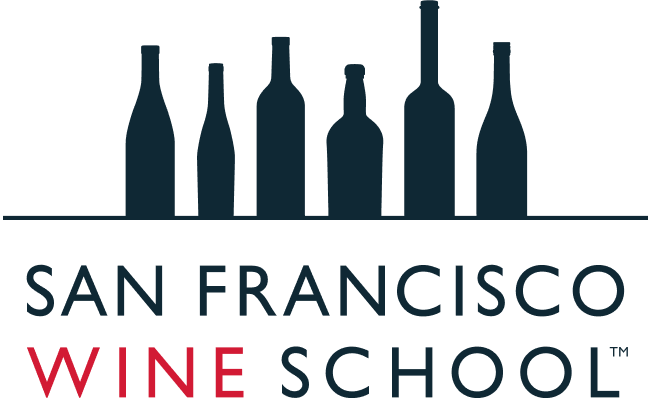Original article featured on Beverage Media Group written by Robert Haynes-Peterson
Sommelier?! The issue of what a sommelier is, or is not—who shall carry that lofty title and what the moniker actually means, if anything—is not going away. If anything, it is becoming more muddled, fractured, debatable.
The chestnut goes that, back in the day, the GM or maître d’ would point to the surliest waiter on staff and say, “You are now the sommelier,” before relegating him to the cellar. By the latter part of the 20th century, as fine dining flourished, it became clear that restaurant wine management deserved more attention.
Codified training programs burgeoned, including the Court of Master Sommeliers (CMS) and the Wine & Spirit Education Trust (WSET). On one hand, this gave rise to the image of an educated, stuffy sommelier who might just look down his or her nose at Pinot Grigio. On the other, trained professionals helming the increasingly dynamic wine lists of America dovetailed nicely with America’s blossoming wine culture.
Today, the idea of “sommelier” being a one-name-fits-all title is almost laughable. With modern dining so varied in format, by-the-glass programs widespread and wine more visible than ever in restaurants, the entire nature of wine service has been stretched like never before. At the same time, the title is arguably reaching an apex of professional respect, thanks to Somm, the movie; sommeliers making wine; and trained sommeliers fanning out into positions of expertise in all three tiers of the industry.
Tempest in a Tastevin
Perhaps most telling, the debate over somm-ness has spilled into dispute territory, especially online. Last year, in a piece called “The Myth of Sommelier Certification, Debunked” in the online magazine PunchDrink.com, Carson Demmond claimed that a lot of those entering and completing traditional sommelier programs today had spent almost no time “on the floor,” and that, in converse, a trial-by-fire field training—somm pin or no—carries as much (or more) weight.
The firestorm around that article raged for a bit, then quieted until March of this year, when now-former San Francisco Chronicle chief wine editor Jon Bonné left his editorial position with a bang: his essay, “The Last Sommelier Standing—Where are All S.F.’s Wine Pros?”, decried a perceived exodus of experienced sommeliers from Bay Area dining as restaurants replace in-house experts with consultants, and wine with cocktails. Bonné’s essay was quickly analyzed and roundly critiqued, the way sommeliers of old might tear apart an over-oaked Chardonnay. (One scathing response—a Facebook post by Master of Wine Geoff Labitzke, soon picked up by Chowhound—pointed out that San Francisco’s “vibrant and active sommelier population” counted 24 advanced sommeliers, compared with 21 in New York and seven in Los Angeles.)
Lest reality be the first victim in the ongoing debate, it is worth pausing to note that formal training and frontline experience are hardly mutually exclusive. Most working certified Master Sommeliers, for example, started at the bottom, just like the noble self-taught railsplitters Demmond celebrates. In fact, the Court of Master Sommeliers suggests three years prior work experience for their Level 2 exam and requires five years for Levels 3 and 4.
In a panel discussion held recently in Las Vegas, featuring eight of Nevada’s 12 certified Master Sommeliers, it was clear that the career path of a top somm is rarely direct, and involves no simple zipline from the classroom. One MS on the panel had been a producer before moving to hospitality; another worked the floor for one of the other somms in the room before getting a formal education; a third had gone from restaurant to distributor to winery. Advanced training does not prepare one for work so much as it tests and fine-tunes experience already gained.
Tips from the Training Grounds
The word sommelier has a very specific meaning to Andrew Bell, having worked in France at Michelen three-star restaurant Guy Savoy. Bell is now CEO of the American Sommelier Association, a certification program based in Manhattan. “The sommelier serves as a ‘second’ to the head or chef sommelier, who handles the bottom line [inventory, staffing, budgets]. While America’s restaurant system is rarely as formal as France, in general a similar structure applies, particularly in large-volume spaces and fine dining,” he explains. “The Beverage Manager is a little more slippery. It could mean everything but wine, or all alcohol. It may also imply no excessive wine knowledge, but has buying power. Any industry has an academic side and a practical side.”
David Glancy, MS and founder of the San Francisco Wine School, which offers a number of general and region-specific courses both online and off, is diplomatic about the flexibility of wine-related job titles. “I do not object to anyone who has the job calling themselves what they like,” says Glancy. “However, I would assume a beverage manager is responsible for more than just wine, while a sommelier has service as part of their duties. But someone who passes any level of exam from any organization is not really a sommelier until they do the job. A guest service mentality, interpersonal skills, cost management skills, attention to detail and knowledge are all required for anyone to be a good sommelier.”
David Keck, sommelier for Houston’s trendy Camerata at Paulie’s, is a relative newcomer to the industry and brings his own perspective to the discussion. The trendy restaurant is in the enviable position of introducing a thirsty audience to an elevated level of wine service, awareness and education. I find “the certification conversations a little redundant,” he says. “At the end of the day, it boils down to education and experience. I want my chefs to have technique, I want them to know how to cook. But I don’t need them to know proper French technique if they’re in a burger joint.”
Terroir-ish Relevance
Almost by default, because of the multitude of restaurant formats in play, the working definition of sommelier can be viewed now more than ever as a matter of circumstance. Not unlike another enigmatic French wine term, terroir, the job becomes an expression of a very specific set of conditions. In Keck’s case, he is determined to translate Paulie’s farm-to-table sensibility to the wine list. “As chefs and diners, we’re excited about where that chicken was raised, but we don’t really care what goes into the glass,” he notes. “We sometimes lose sight of who makes the wine, who grows the grapes and how it’s approached.”
His role at the restaurant also embraces education, in multiple ways, on an almost daily basis. He communicates with clientele on traditional wine vocabulary and specific wine details (“Houston’s in a pivotal place as far as wine is concerned”). Meanwhile, a big part of Keck’s job behind the scenes is training his staff to make guests feel comfortable. “Even if the wine list is esoteric—and that’s a challenge in restaurant menus now—no matter what it is, if you can make them feel at ease, the next step is making sure that what ends up in their glass is what they’re looking for. It’s been a huge part of the bartending world, and now I think it’s moving into wine,” he says.
Bell agrees that, in a world where obscure South African monopoles share a page with established Bordeaux Crus Bourgeois and heirloom Italian varietals, a big part of the sommelier’s job today is in guiding guests to an enjoyable experience. “I think many people regard the sommelier as the person with the coolest job,” Bell notes. “They get to taste all day and really only have to work a couple of hours a day. But a sommelier’s greatest asset is a combination of organization, finance, public speaking and listening. Putting a guest into the wine they want to consume, not the wine you want them to drink, is not as easy as it seems.”
For Keck, debates over who is or is not a “real” sommelier are missing the point. “We are all servants, we’re all in the hospitality business,” he says. “The word came from the guy who used to bring the horses and dogs around front. When people forget about service, that’s where you get the arrogant attitude.” And while Keck personally feels continuing education and certification courses help force him to explore and fully appreciate uncharted regions to the benefit of the consumer, he adds: “I don’t think certifications are absolutely necessary provided you’re being true to your craft.” And no matter how a wine professional climbs the on-premise wine ranks, one’s foundation of knowledge needs to be strong: “Picasso learned to draw before he decided to mess with the art form. We need to learn the tools of our trade before we can be irreverent with them.”
Written by | Robert Haynes-Peterson



